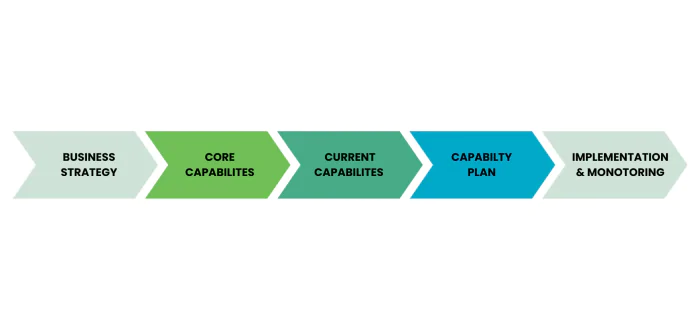Capability-Based Planning (CBP) is a strategic planning method designed to help organizations achieve their business objectives through the effective use of their capabilities. This method has become an essential tool for management consultants to guide companies in a constantly changing market environment (VUCA).
CBP originated from military planning approaches and has evolved into the business world. This method emphasizes the importance of organizational capabilities over traditional resources such as personnel and technology. The focus is on what an organization can effectively do to achieve its strategic goals.
Phases of Capability-Based Planning
There are five phases that are divided into CBP:

- Phase 1: Definition of Business Strategy
The first step involves defining a clear and precise business strategy. This strategy should encompass the organization's long-term goals and the path to achieving these goals. - Phase 2: Identification of Core Capabilities
Once the business strategy is set, the core capabilities required to implement this strategy need to be identified. These capabilities include not just technical skills but also organizational and procedural competences. - Phase 3: Assessment of Current Capabilities
In this phase, a thorough assessment of the organization's current capabilities is conducted. This involves an analysis of strengths and weaknesses and the gaps that need to be filled. - Phase 4: Development of a Capability Plan
Based on the preceding analyses, a detailed plan is developed that outlines how to develop, improve, or acquire the necessary capabilities to support the business strategy. - Phase 5: Implementation and Monitoring
The final step is the implementation of the capability plan and continuous monitoring and adjusting of capabilities to ensure they align with the evolving business strategy.
Conclusion
Capability-based planning is a dynamic and strategically focused method that supports management consultants in effectively advising organizations. By emphasizing capabilities and competencies, consultants can help organizations achieve their goals in a complex and rapidly changing business world.


